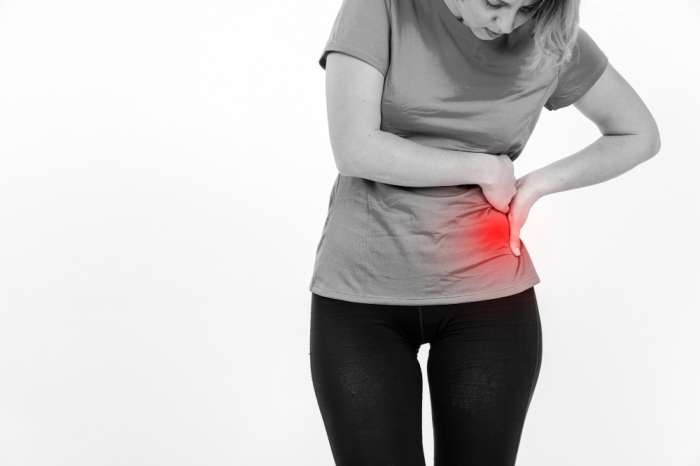The Role of Diet in Hernia Management
BlogAs a highly experienced surgeon, I understand the importance of taking a holistic approach to hernia care.
In this article, we will explore the impact of dietary choices on hernia management, focusing on the Indian audience.
Making informed dietary decisions can support your body’s healing process, prevent complications, and improve your overall well-being.

What is Hernias?
Hernias occur when an organ or fatty tissue pushes through a weak spot or opening in the surrounding muscle or connective tissue.
Common types of hernias include inguinal (groin), hiatal (upper stomach), and umbilical (belly button). Factors such as genetics, obesity, heavy lifting, and chronic coughing can contribute to hernia development.
Proper management of hernias is crucial to prevent potential complications. While surgical intervention may be necessary in many cases, adopting a healthy lifestyle, including a balanced diet, plays a vital role in supporting your body’s healing process.
The Role of Diet in Hernia Management
A well-rounded diet is essential for maintaining overall health and supporting hernia management. Your diet directly impacts factors such as digestion, inflammation, and tissue repair. By making conscious dietary choices, you can positively influence your recovery and reduce the risk of hernia-related symptoms.
Foods that Can Exacerbate Hernia Symptoms
Certain foods have the potential to worsen hernia symptoms or trigger discomfort. It is advisable to limit or avoid the following:
- Spicy and acidic foods: These can irritate the digestive system, leading to heartburn or acid reflux, which can exacerbate hernia symptoms.
- High-fat and fried foods: These can slow down digestion and contribute to weight gain, increasing the pressure on herniated areas.
- Carbonated beverages: The carbonation can cause bloating and increase stomach pressure, potentially worsening symptoms.
- Large, heavy meals: Consuming large portions in one sitting can strain the digestive system, leading to discomfort and reflux.
By being mindful of these foods, you can reduce the likelihood of experiencing flare-ups or exacerbating hernia symptoms.
Also, Read– Can hernia be cured without surgery?
Foods that Can Promote Healing
Adopting a diet rich in specific foods can support hernia management and promote healing. Consider including the following in your daily meals:
- High-fiber foods: Whole grains, fruits, and vegetables are excellent sources of fiber. They help regulate bowel movements, prevent constipation, and reduce straining during bowel movements, which can alleviate hernia-related discomfort.
- Lean proteins: Opt for lean meats, poultry, fish, legumes, and tofu. These protein sources are essential for tissue repair and provide necessary nutrients without excess fat.
- Fruits and vegetables: Incorporate a variety of colorful fruits and vegetables into your diet. They are rich in vitamins, minerals, antioxidants, and fiber, supporting overall health and promoting healing.
- Whole grains: Choose whole grains such as brown rice, quinoa, whole wheat bread, and oats. These provide essential nutrients and fiber while helping to maintain regular digestion.
- Water: Staying adequately hydrated is crucial for proper digestion and overall health. Aim for at least eight glasses of water per day.
Including these foods in your diet will enhance your body’s ability to heal, reduce inflammation, and support optimal recovery from hernias.
Nutrients and Supplements
Certain nutrients play a crucial role in hernia management. While a well-balanced diet should provide most of these nutrients, some may require additional supplementation. Consider the following:
- Vitamins: Vitamin C is essential for tissue repair and collagen production. Include citrus fruits, berries, and leafy greens in your diet to ensure an adequate intake.
- Minerals: Zinc supports the immune system and promotes wound healing. Incorporate zinc-rich foods such as lean meats, seafood, nuts, and seeds into your meals.
- Omega-3 fatty acids: These healthy fats have anti-inflammatory properties. Include fatty fish like salmon, walnuts, and chia seeds in your diet.
While whole foods are the best sources of nutrients, supplements can be useful in cases where dietary intake may be insufficient. Consult with a surgeon or registered dietician to determine if supplementation is necessary.
Must Watch this Video
Diet and Hernia Prevention
A healthy diet can also contribute to the prevention of hernias. By maintaining a healthy body weight, adopting a high-fiber diet, and practicing proper lifting techniques, you can reduce the risk of developing hernias.
Additionally, avoid tobacco and excessive alcohol consumption, as these can weaken tissues and increase the likelihood of hernias.
Lifestyle and Diet Balance
While diet plays a significant role in hernia management, it is essential to approach hernia management holistically. Alongside a nutritious diet, maintaining a balanced lifestyle is equally important. Here are some additional considerations:
- Weight management: Excess weight can increase the strain on herniated areas. Incorporate regular exercise into your routine to promote weight loss or maintenance. Consult with a surgeon or a registered dietician for personalized guidance on calorie intake and exercise recommendations.
- Regular exercise: Engaging in regular physical activity can strengthen the muscles surrounding the hernia and improve overall muscle tone. Low-impact exercises like walking, swimming, and yoga can be beneficial. However, it’s essential to consult with your surgeon before starting any exercise regimen to ensure it is safe and appropriate for your specific condition.
- Proper lifting techniques: When lifting heavy objects, always use proper form and technique. Bend at the knees and lift with your legs rather than your back. Avoid heavy lifting altogether if possible, as it can strain the abdominal muscles and potentially worsen hernia symptoms.
- Smoking cessation: Smoking can weaken tissues and impair healing. If you smoke, consider quitting to support your body’s natural healing process and reduce the risk of complications.
- Stress management: Stress can exacerbate symptoms and interfere with the healing process. Engage in stress-reducing activities such as meditation, deep breathing exercises, or engaging in hobbies you enjoy.
Precautions and Dietary Considerations by Hernia Type
It’s important to mention that different types of hernias may require specific precautions and dietary considerations. For example:
- Inguinal hernias: It is advisable to avoid foods and activities that increase intra-abdominal pressure, such as heavy lifting and straining during bowel movements. High-fiber foods can help prevent constipation, which can strain the abdominal muscles.
- Hiatal hernias: These involve the upper stomach and can be aggravated by certain foods that trigger acid reflux, such as spicy and acidic foods, citrus fruits, chocolate, and caffeine. It may be helpful to keep a food diary to identify and avoid specific trigger foods.
- Umbilical hernias: Maintaining a healthy weight and avoiding excessive strain on the abdominal muscles is crucial for managing umbilical hernias. A nutrient-rich diet and regular exercise are essential.
Always consult your hernia surgeon in Pune or a registered dietician for personalized advice based on your specific hernia type and medical history.
Also, Read- Hernia surgery cost in Pune
In conclusion, adopting a balanced and nutritious diet plays a critical role in hernia management. Choosing foods that support healing, reduce inflammation, and promote overall health can enhance your body’s ability to recover from hernias.
Remember to consider your unique circumstances, consult with a surgeon, and make informed choices that align with your specific needs and preferences.
By taking a holistic approach to hernia management, including dietary considerations, lifestyle modifications, and appropriate medical care, you can optimize your recovery and lead a healthier life. Embrace the power of nutrition and lifestyle choices to support your body’s healing process and ensure long-term well-being.


 +919011100010
+919011100010 


